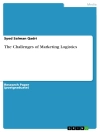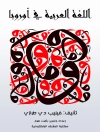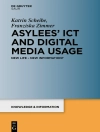This book explores the mediated aftermath and remembrance of the 2011 Fukushima Daiichi nuclear disaster through three crucibles: time, space and emotion. Through an ambitious and innovative combination of theoretical and methodological approaches, the book discusses how meanings, emotions and interpretations of disruptive events such as the Fukushima Daiichi disaster circulate and change over time and space in the global, contemporary hybrid media environment. Through its six multi-method empirical case studies from Japanese local newspapers to commemorative Tweets, the volume addresses questions of memory, trauma, expertise and nuclear politics in relation to the three key concepts of the book. The findings of this book provide new insights on research of disruptive media events in the contemporary hybrid media environment.
विषयसूची
Introduction: Tracing the Meanings of Fukushima.- Part I – Time.- Dealing with the Disaster – The Live Media Event.- Temporal Affordances in the Networked Remembering of Fukushima.- Part II – Space.- Towards a Geography of Mediated Affect: Discursive Spaces and Emotional Dynamics.- Social Media and Ambient Social Distance.- Part III –Emotion.- The Global Circulation of Affect – The Case of Iodide Tablets.- Affective Entanglements of Expertise – The Finnish Case.- Conclusion: Time, Space and Emotion in Tracing Fukushima.
लेखक के बारे में
Katja Valaskivi is Research Director for the Tampere Research Centre for Journalism, Media and Communication (COMET) at Tampere University, Finland.
Anna Rantasila is a doctoral student of media studies at Faculty of Information Technology and Communication Sciences, Tampere University, Finland.
Mikihito Tanaka is Associate Professor for the Journalism School, Graduate School of Political Science at Waseda University, Japan.
Risto Kunelius is Professor of Journalism at Tampere University, Finland.












